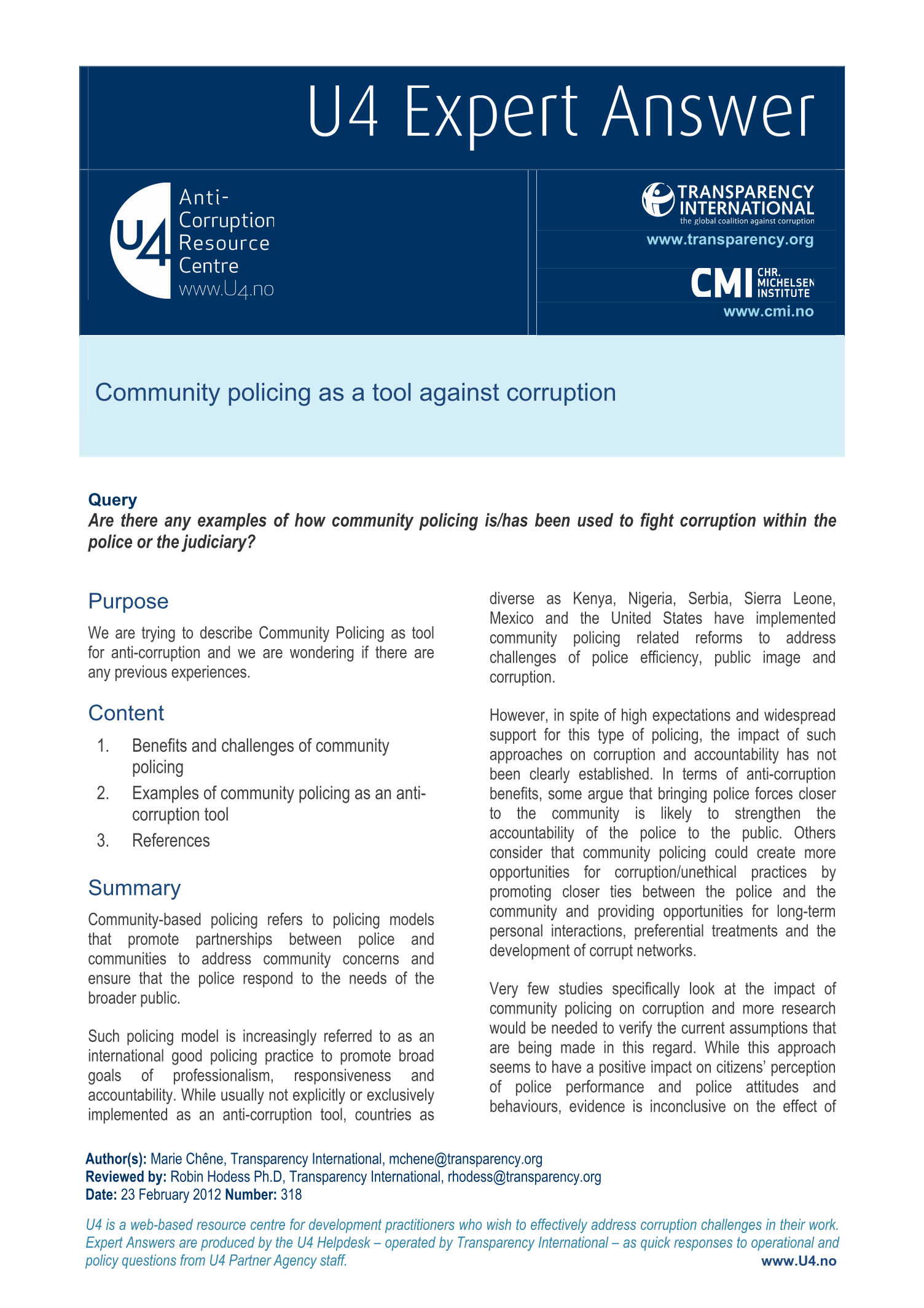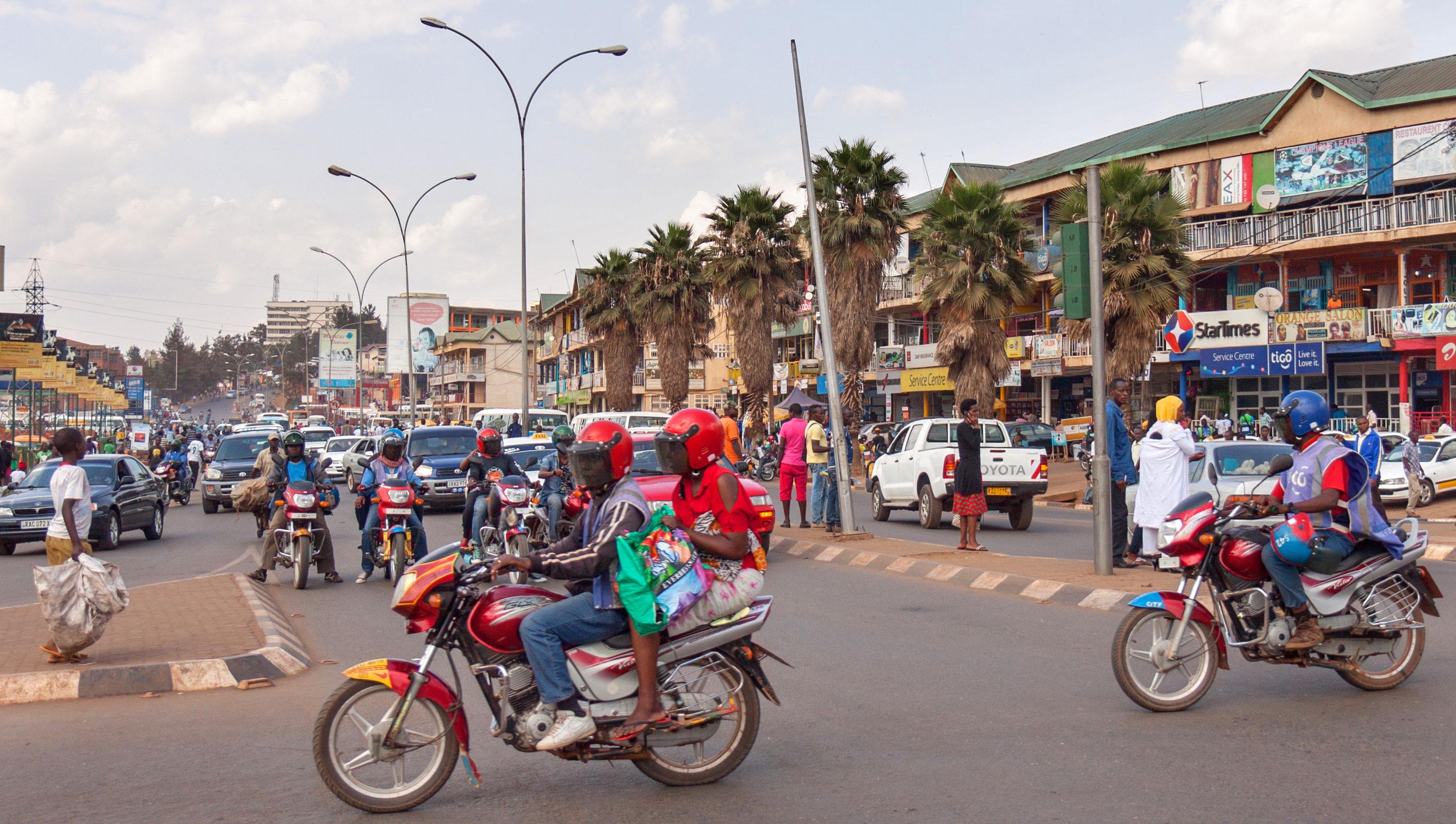U4 Helpdesk Answer
Community policing as a tool against corruption
Community-based policing refers to policing models that promote partnerships between police and communities to address community concerns and ensure that the police respond to the needs of the broader public.
Community policing models are increasingly referred to as international good policing practice to promote broad goals of professionalism, responsiveness and accountability. While usually not explicitly or exclusively implemented as an anti-corruption tool, countries as diverse as Kenya, Nigeria, Serbia, Sierra Leone, Mexico and the United States have implemented community policing related reforms to address challenges of police efficiency, public image and corruption.

Cite this publication
Chêne, M. 2012. Community policing as a tool against corruption. Expert Answer 318
Disclaimer
All views in this text are the author(s)’, and may differ from the U4 partner agencies’ policies.
This work is licenced under a Creative Commons Attribution-NonCommercial-NoDerivatives 4.0 International licence (CC BY-NC-ND 4.0)


